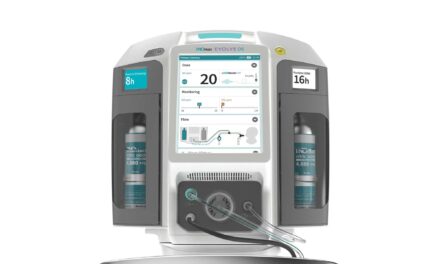Results from the NAVIGATOR study of tezepelumab showed the drug significantly reduced exacerbations requiring hospital stays and emergency department (ED) visits for adults and adolescents with severe, uncontrolled asthma, according to research presented at ATS 2021.
For the study, 1,059 patients age 12-80 years old with severe, uncontrolled asthma who were being treated with medium-or high-dose inhaled corticosteroids and at least one other asthma controller medication were recruited for the study. Approximately half of the study participants received 210 mg of tezepelumab subcutaneously (under the skin) while the other half received a placebo every 4 weeks for 52 weeks.
Patients were assigned to the two groups randomly, and researchers were blinded to which participants were receiving the treatment and which were receiving the placebo. The investigators calculated the annualized rate of asthma exacerbations that required hospitalization or an ED visit for the two groups over the year, and also assessed the time to first evaluation that required hospitalization or ED visit. They also evaluated the proportion of patients who required asthma-related health care resources over the 52 weeks.
Tezepelumab demonstrated significant and clinically meaningful reductions in annualized asthma exacerbation rates (AAER) across all eosinophil level subgroups:
- 70% AAER reduction in EOS ≥300;
- 41% AAER reduction in EOS <300 (p<0.001);
- 39% AAER reduction in EOS <150.
- Tezepelumab also reduced the rate of exacerbations that required hospitalization or an emergency room visit by 79%, compared with placebo.
- The investigational therapy prolonged the time to first exacerbation that required hospitalization or an ED visit (compared with placebo), with a risk reduction of 65%.
- A lower proportion of patients in the tezepelumab group than in the placebo group required asthma-related hospitalizations (3.2% vs 7.0%), ED visits (4.4% vs 9.4%), unscheduled visits to a specialist (35.4% vs 43.5%), telephone calls with a healthcare provider (19.1% vs 25.0%) or ambulance transport (0.8% vs 2.3%).
In addition, tezepelumab demonstrated statistically significant improvements in key secondary endpoints compared to placebo in lung function, asthma control and health-related quality of life. The researchers observed improvements in tezepelumab-treated patients as early as the second week of treatment or at the first time point assessment. These improvements were sustained throughout the treatment period.
Tezepelumab is the first thymic stromal lymphoprotein blocker designed to treat asthma. Thymic stromal lymphoprotein is an inflammatory cytokine (small protein involved in cell signaling) that controls other inflammatory cells involved in asthma. It can cause severe pathological airway inflammation and, ultimately, structural changes in the airways.
“Tezepelumab offers new therapeutic opportunities for patients who are currently ineligible for biologic treatments,” said study author/investigator Arnaud Bourdin, MD, professor, Département de Pneumologie et Addictologie, PhyMedExp, University of Montpellier, CNRS, INSERM, CHU Montpellier, Montpellier, France. “It may also challenge the current mandatory step of biomarker assessment before initiating a biologic.”Biologics are drugs that are derived from living cells.“
“Patients with severe asthma are at an increased risk of mortality and, compared to patients with persistent asthma, have twice the risk of asthma-related hospitalizations,” stated the authors. “Reductions in hospitalizations are particularly important at this critical time.”










